Working-class parents 'forgotten by government'
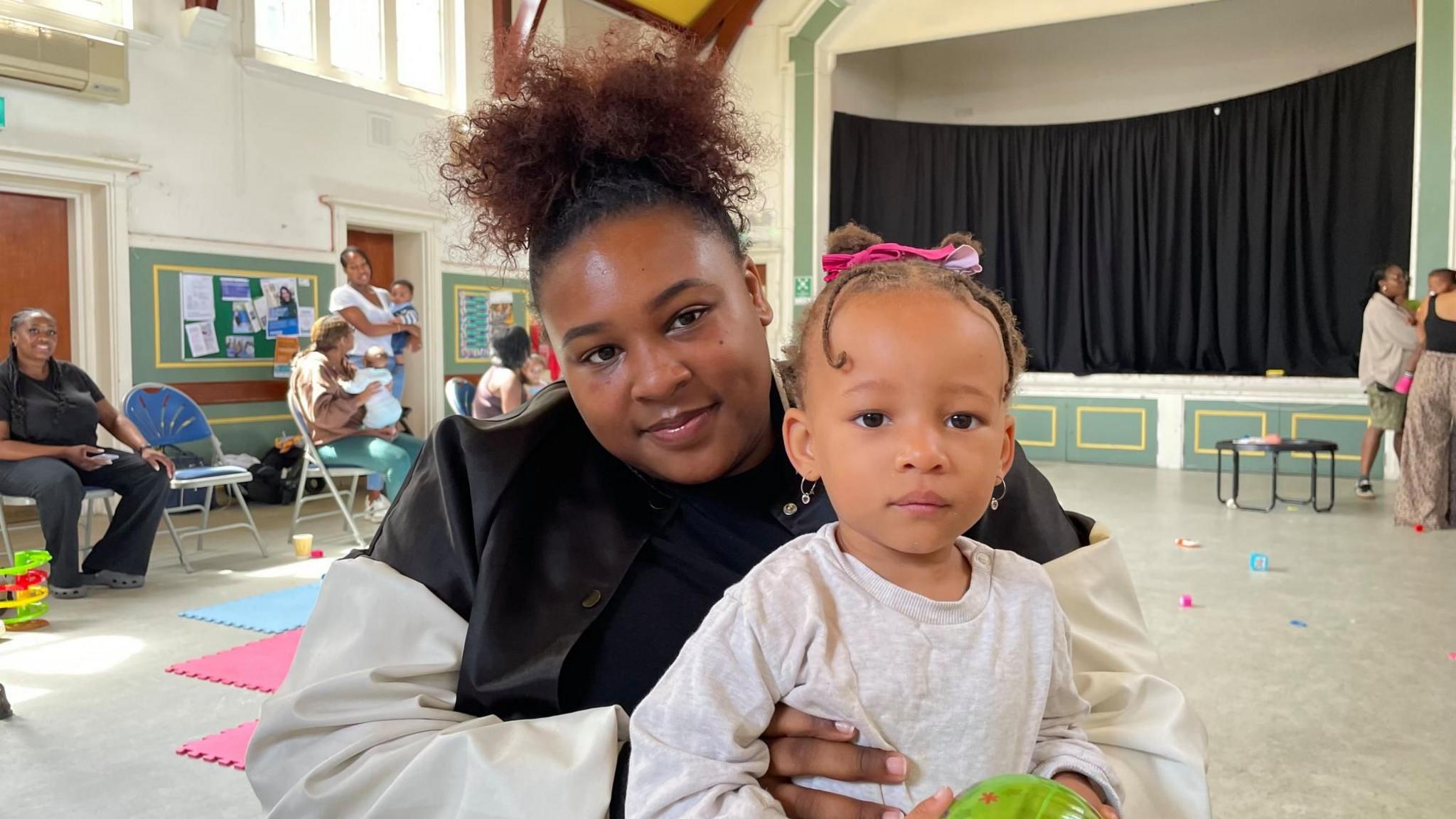
Kierra Joseph said working-class families had been forgotten
- Published
A group of parents has said working-class families were forgotten by government as their expenses increased during the cost-of-living crisis.
Kierra Joseph, 25, is a single mother who attends the Tea and Play Wellness Hub at Queens Park in Bedford. She voted Labour in the election in the hope of changing things.
"Working-class families and lower-income families get pushed to the side and forgotten," she said.
"There's not much thought [for these people] trying to work and support their families... there's not much help out there."
Ms Joseph works full-time as a specialist teaching assistant and attends the group with her only daughter, Ashaiah-Tegan, who is two and a half.
She said she had mostly noticed the increased cost of her monthly food shop.
"When I first had her it wasn't so high. Now it's gone up by an extra £100 a month," she said.
"It's a struggle when you're working full-time and you have bills to pay.
"There's not really much you can do. At the end of the day, everybody has to eat, everybody has to do their food shopping.
"Food is a necessity, so you end up going without certain activities for kids and stuff."
Ms Joseph said she was hopeful Labour's plans for economic growth would provide more help for single parents and those on low income.
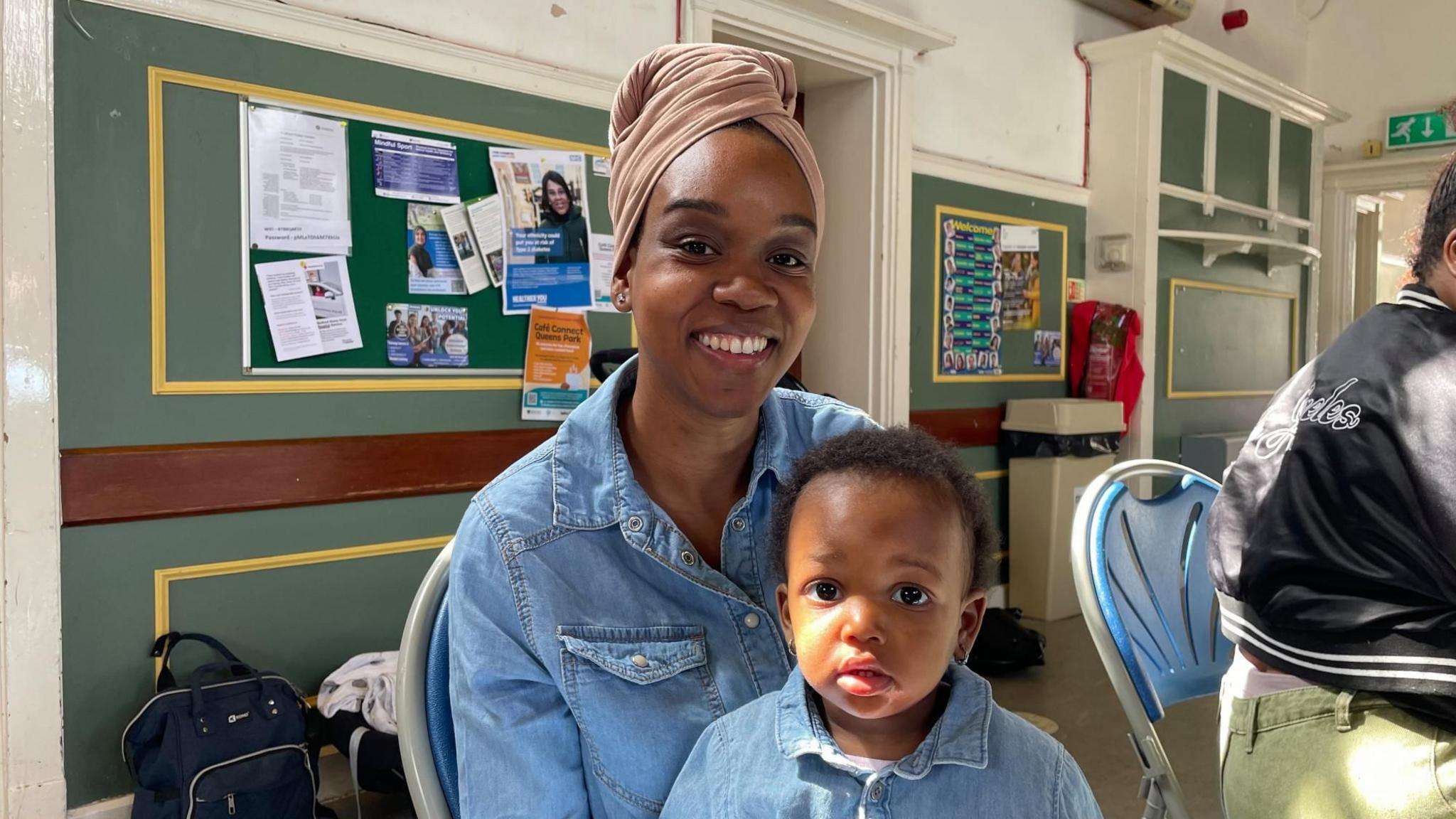
Roseanne Opaarah, with Jaylin, said her childcare costs had gone up
Another parent in the group, Roseanne Opaarah, 32, who works for the Home Office, moved to Bedford from London with her husband two years ago.
She said rising mortgage costs had been her family's "biggest pressure point".
The mother-of-two said: "It's been somewhat manageable but now we have a second little one, with extra childcare costs as well."
Her mortgage has increased by about £200 a month. Her son is in Reception and her daughter is starting nursery in September.
"I need to figure out what it is going to cost us... I'm not exactly sure. We've kind of been burying our head in the sand," she said.
Ms Opaarah added that the biggest impact had been food costs.
"Maybe [the government could offer] vouchers for parents with kids under five, something like that, because as we all know the healthier your try to be, the more expensive the food shop is," she said.
"In the last six months you do the same food shop and each month the price is going up and up."
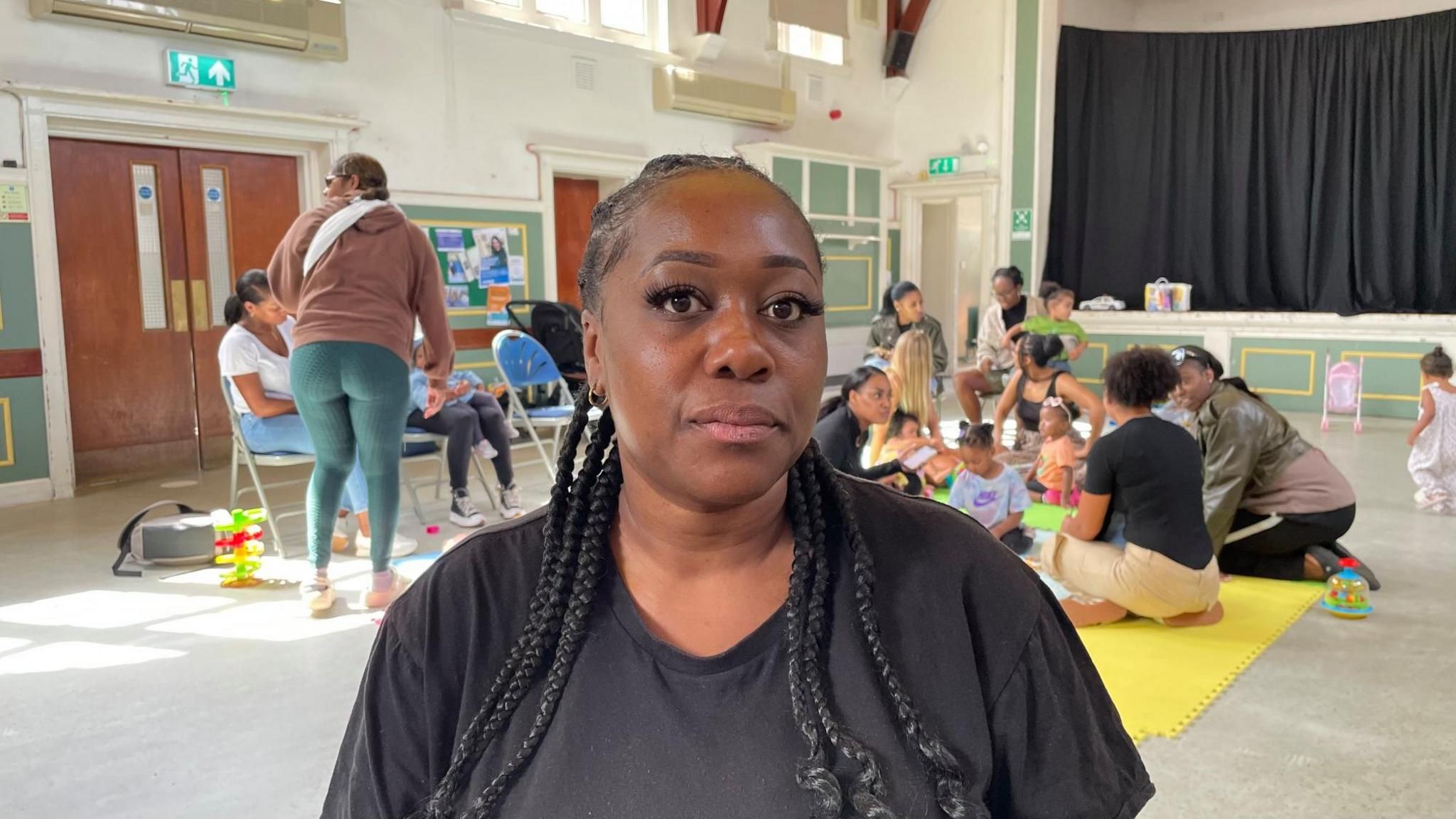
Alysha Gordon has ran her group in Bedford for about a year
Alysha Gordon, 36, has run the hub at Queens Park since April 2023.
The group is attended by a mixture of single parents and those in relationships. They pay £6 per session.
"Across the board, they all find it quite difficult," she said. "Baby essentials, rent, bills - everything is going up. They're finding the pressure of that quite hard."
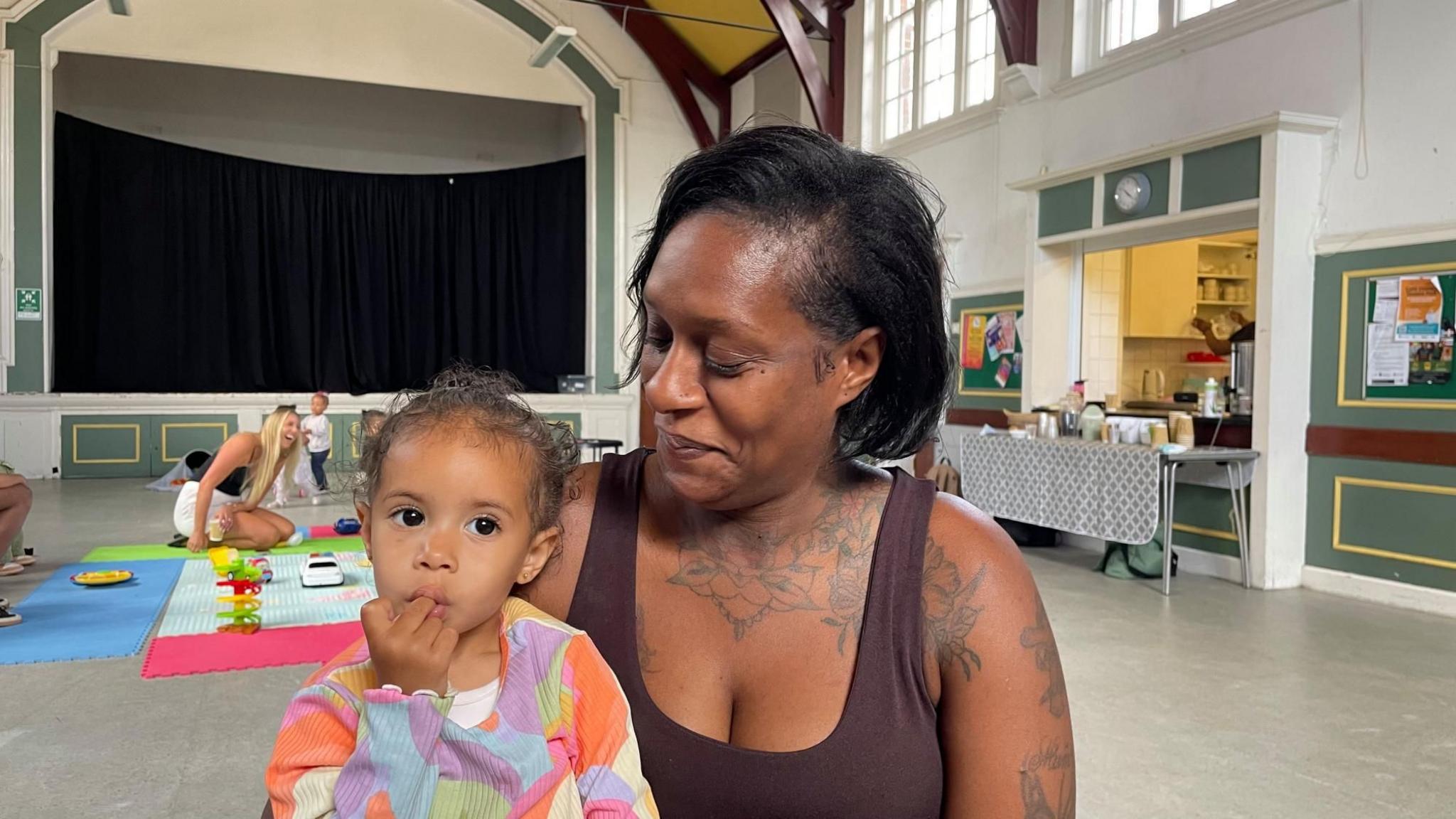
Chanel Gibbons said food shopping was "just a joke"
Chanel Gibbons, 34, has five children in her house with another on the way.
She studied fashion at university and now makes matching clothes for babies, toddlers and mums. Her partner works full-time.
"It was affordable before," she said. "I don't know what's changed... everything has gone sky high. It's not just food. It's gas, electric and water.
"One week you can get a food shop for a reasonably decent amount, then you go back to the same shop a few weeks later and the same shop has hiked up by 50p or 60p.
"Fifty pence isn't a lot money but it is when it accumulates. Shopping is just a joke."
Follow Beds, Herts and Bucks news on Facebook, external, Instagram, external and X, external. Got a story? Email eastofenglandnews@bbc.co.uk, external or WhatsApp us on 0800 169 1830
Related topics
Related stories
- Published21 August 2023
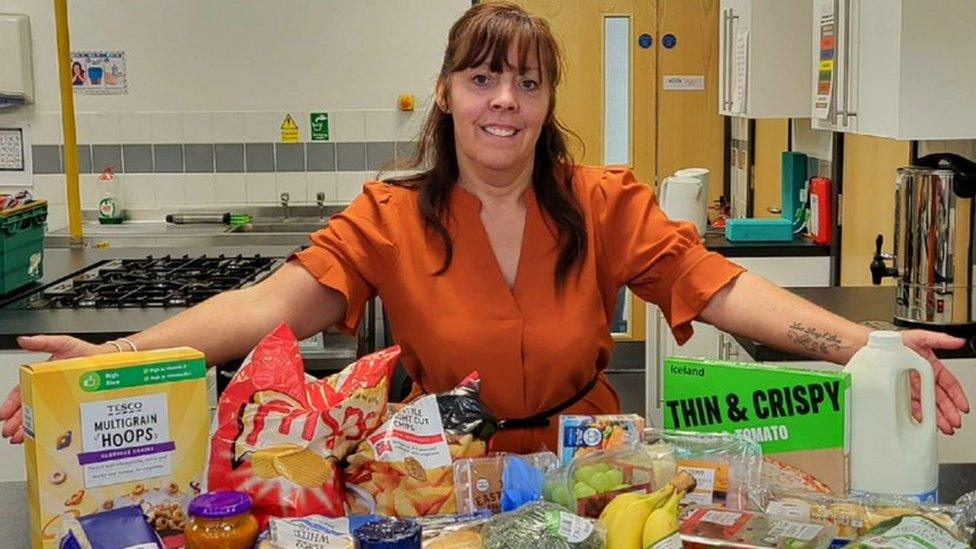
- Published18 June 2024
